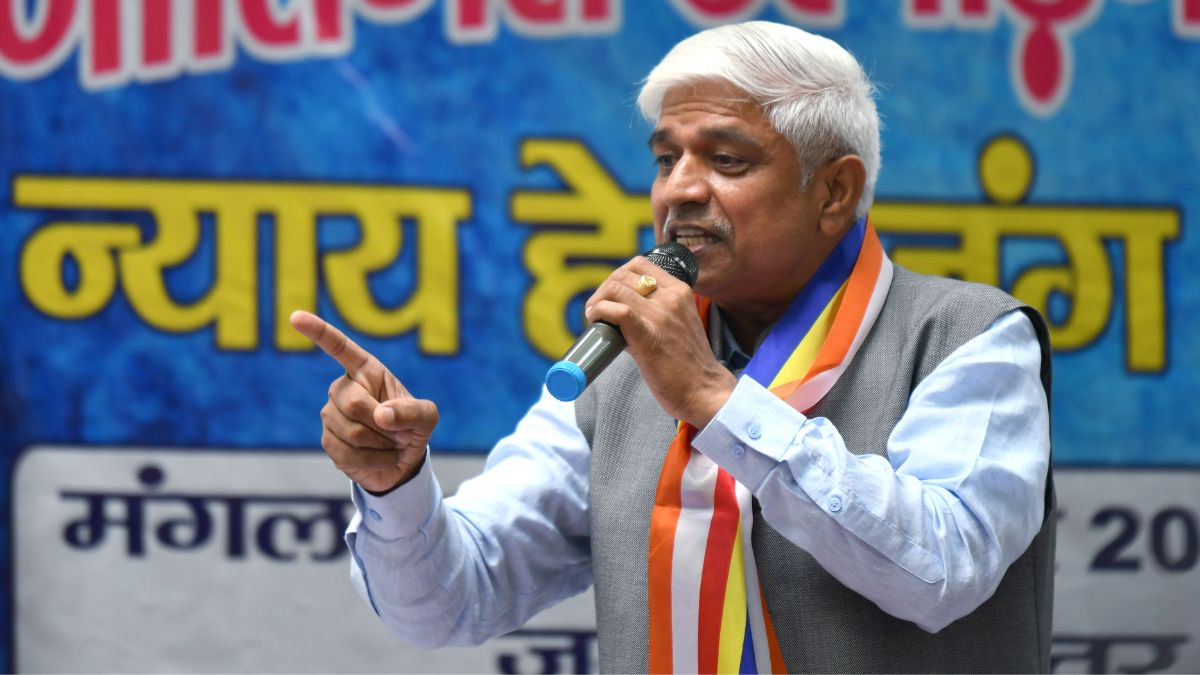Rajendra Pal Gautam, a prominent Dalit leader and former minister in the Aam Aadmi Party (AAP) government, has recently resigned from the party, citing a lack of focus on social justice. This move marks the latest departure of a senior AAP leader ahead of the Delhi assembly elections, highlighting potential internal struggles within the party.
Gautam’s Resignation: A Blow to AAP’s Social Justice Credentials
Rajendra Pal Gautam, a three-time MLA from Seemapuri, served as a minister in the Kejriwal government from 2020. He was a prominent figure in the AAP and his departure sends a strong signal about the party’s waning influence among Dalit voters. Gautam’s resignation letter to Chief Minister Arvind Kejriwal points to a growing disconnect between the party’s actions and its promises regarding social justice. He claims that the party has become muted on crucial issues such as caste-based census and representation of marginalized communities. This silence, Gautam asserts, is a consequence of succumbing to pressure from the BJP’s ideology, undermining the core principles of social justice upon which AAP was founded.
Gautam’s Exit Raises Concerns About AAP’s Commitment to Social Justice
Gautam’s departure reflects a deeper dissatisfaction within the party concerning the leadership’s commitment to addressing social justice issues. His claim that the party has become silent on matters related to caste-based census and representation, which he believes is driven by political pressures, highlights a perceived shift away from AAP’s founding principles. His accusation of the party succumbing to the influence of BJP’s ideology suggests that the leadership is prioritizing political gains over social justice concerns. This narrative, if accepted by the electorate, could significantly impact AAP’s support among traditionally marginalized communities, particularly Dalits.
Gautam’s Induction into Congress: A Symbolic Shift?
Following his resignation, Gautam joined the Indian National Congress (INC). This move is symbolic, suggesting that he views the Congress as a better platform to advocate for social justice and the representation of Dalit communities. In his remarks after joining the Congress, Gautam highlighted the rising religious and caste frenzy in the country, emphasizing the need for a party that prioritizes social justice. He particularly cited Rahul Gandhi’s ‘Mohabbat ki dukaan’ slogan during the Bharat Jodo Yatra, stating that the message resonated with his values and beliefs.
A Re-emphasis on Social Justice and Inclusion?
Gautam’s shift to Congress raises questions about the potential impact on the political landscape. His experience and stature within the Dalit community could give the Congress a strategic edge in appealing to a segment of voters traditionally seen as supporting AAP. However, this also depends on the Congress’s capacity to solidify its commitment to social justice and ensure a tangible shift in its approach.
Gautam’s decision to align with the Congress, despite the party’s recent electoral setbacks, signifies his belief in the party’s potential to deliver on its promises concerning social justice. He sees the Congress as a platform to effectively raise and advocate for the rights and representation of marginalized communities, particularly Dalits. This move might signify a larger political shift in the national narrative concerning social justice.
Implications for the Upcoming Delhi Assembly Elections
Rajendra Pal Gautam’s exit from AAP adds further complexity to the upcoming Delhi assembly elections. His influence and popularity among Dalit voters in Seemapuri could be a valuable asset for either AAP or Congress. However, the implications go beyond electoral gains; they point towards a potential redefinition of political ideologies and priorities, particularly in relation to social justice.
A Potential Shift in Electoral Dynamics?
Gautam’s shift could potentially reshape the political landscape of Delhi by influencing the voting dynamics, particularly within communities like Dalits. While the impact is uncertain, it could influence the outcome of the upcoming assembly elections. The impact on AAP will depend on its ability to mitigate the loss of support amongst Dalit voters. The party needs to demonstrate a commitment to social justice, moving beyond rhetoric to implement concrete measures to address concerns and win back the confidence of its voters.
Take Away Points
- Rajendra Pal Gautam’s resignation from the AAP, citing the party’s lack of focus on social justice, reflects potential fissures within the party regarding its core principles.
- His move to the Congress indicates a potential shift in the political landscape, with both parties vying for the support of Dalit voters.
- Gautam’s departure signifies a potentially pivotal development for the upcoming Delhi assembly elections, adding a layer of complexity to the electoral dynamics.
- The impact of this event hinges on both AAP and Congress’s ability to demonstrate commitment to social justice and effectively address concerns within the Dalit community.
- Gautam’s exit, coupled with previous resignations, could ultimately redefine political ideologies in Delhi, emphasizing the need for political parties to actively engage with and address social justice concerns.




